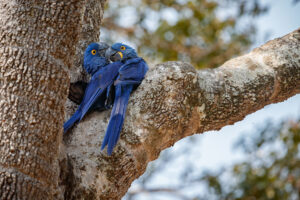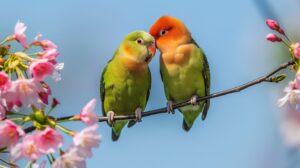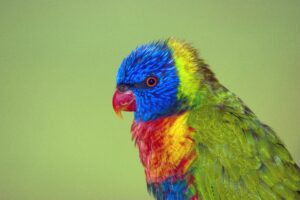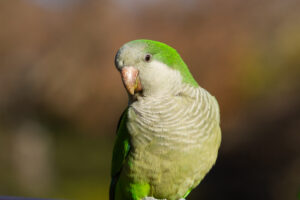Introduction
Are you considering adding a feathered friend to your family? The Black Capped Conure, with its vibrant plumage and playful personality, might seem like an ideal choice at first glance. These colorful parrots have become increasingly popular in the pet trade, but before you rush to bring one home, it’s essential to understand that the Black Capped Conure isn’t the right fit for everyone.
While the Black Capped Conure can make a wonderful companion for the right owner, there are several significant challenges associated with these birds that potential owners should carefully consider. From their distinctive noise levels to their extensive care requirements, Black Capped Conures demand specific conditions to thrive in captivity.
In this comprehensive guide, we’ll explore four crucial reasons why the Black Capped Conure might not be the ideal pet for your situation. We’ll cover everything from their behavioral tendencies and healthcare needs to the significant commitment they represent in terms of time, finances, and emotional investment. By understanding these factors before making a decision, you can ensure that you’re prepared for the realities of Black Capped Conure ownership or potentially find a pet that better suits your lifestyle.
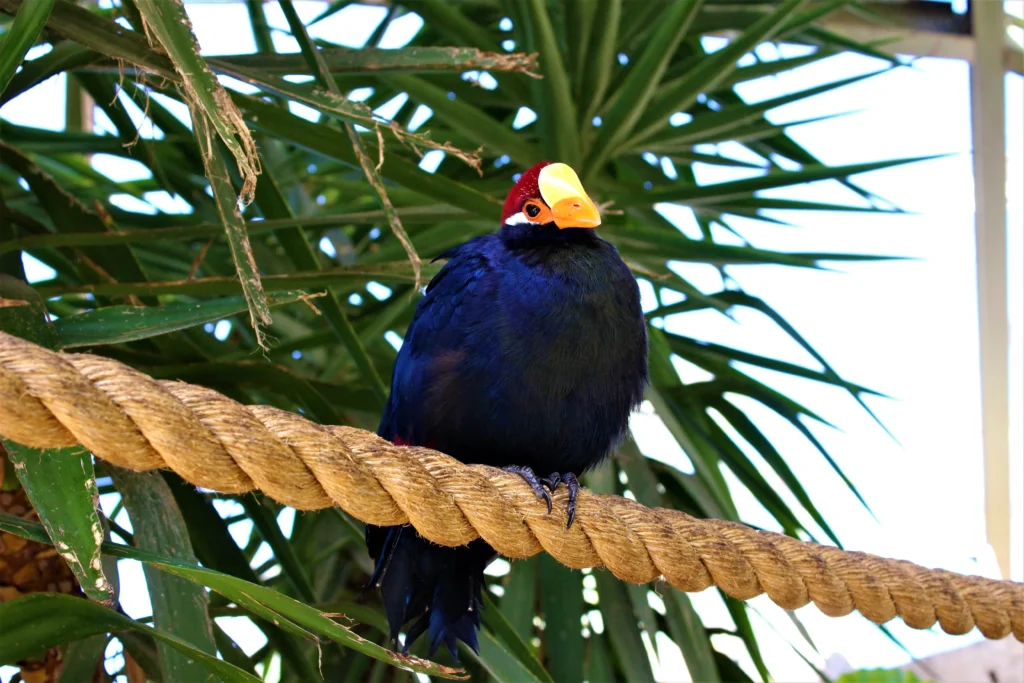
What Is a Black Capped-Conure?
Before diving into why a Black Capped Conure might not be the right pet for you, let’s first understand exactly what this bird is. The Black Capped-Conure (Pyrrhura rupicola), also known as the Rock Conure, is a small to medium-sized parrot native to South America, particularly regions of Peru, Bolivia, and western Brazil. These striking birds are members of the Pyrrhura genus, a group of conures known for their relatively smaller size compared to other conure species.
The Black Capped-Conure derives its name from its most distinguishing feature: a dark cap of feathers on top of its head that contrasts beautifully with its primarily green body. These birds typically display:
- A vibrant green body with scattered maroon patches
- A distinctive black cap on the crown
- Grayish breast feathers with light scalloping
- Hints of blue on their wing feathers
- A horn-colored beak
- Dark eyes with white eye-rings
Averaging 9-10 inches (23-25 cm) in length, the Black Capped-Conure falls into the medium-small category of pet parrots. Their Black Capped-Conure size makes them larger than budgies but significantly smaller than macaws or large cockatoos. With proper care, a Black Capped Conure lifespan typically ranges from 20 to 30 years, making them a long-term commitment for prospective owners.
Black Capped Conures are often sought after for their intelligence, playful nature, and relative affordability compared to larger parrots. The Black Capped-Conure price typically ranges from $350 to $600, depending on the bird’s age, coloration, and whether it has been hand-raised. However, this initial Black Capped Conure price is just the beginning of the financial commitment required.
Now that we understand what makes the Black Capped Conure distinct, let’s examine the four primary reasons why this parrot species might not align with your expectations or lifestyle as a pet.
Reason #1: Noise Levels That Can Disrupt Your Household
One of the most significant challenges of Black Capped Conure ownership is managing their noise level. While the Black Capped Conure is actually considered one of the quieter conure species, their potential for noise should not be underestimated. These birds have a natural inclination to vocalize, particularly during dawn and dusk, which aligns with their wild behavior patterns.
The Black Capped Conure Noise Level Reality
The Black Capped Conure noise level can be characterized by:
- Morning and evening “calls”: Black Capped Conures are programmed to call out during sunrise and sunset, often with sharp, piercing vocalizations that can carry through an entire home or apartment building.
- Contact calls: When separated from their flock (which, in captivity, means you), Black Capped Conures will emit loud contact calls to locate their companions.
- Excitement screams: During play or when excited, these birds can produce surprisingly loud vocalizations.
- Territorial alerts: Any perceived threat or unfamiliar situation might trigger warning calls from your Black Capped Conure.
While the Black Capped Conure noise level is generally less intense than that of Sun Conures or Jenday Conures, their calls can still reach considerable volumes. This presents a particular challenge for:
- Apartment dwellers with close neighbors
- Households with shift workers who sleep during the day
- Families with young children who nap
- Anyone sensitive to sudden, sharp sounds
- Home office workers who need quiet for calls or concentration
Even with extensive training, the Black Capped Conure’s natural instinct to vocalize cannot be completely eliminated. Their calls serve important social and communication functions that are deeply ingrained in their behavior. Attempting to suppress these vocalizations can actually lead to stress and behavioral problems in your bird.
When comparing the Black Capped Conure vs Green Cheek Conure noise levels, many avian experts suggest that Black Capped Conures tend to be slightly louder and more frequent vocalizers than their Green Cheek cousins, though individual variations exist in both species.
Before bringing a Black Capped Conure into your home, honestly assess your noise tolerance and living situation. If you require a consistently quiet environment or live in housing with strict noise regulations, this particular species might not be the ideal choice for your circumstances.
Reason #2: Demanding Care Requirements
The Black Capped Conure care regimen is significantly more involved than many prospective owners anticipate. These birds require specialized attention across multiple dimensions of care, making them unsuitable for casual pet owners or those with limited time and resources.
Dietary Needs
The Black Capped Conure diet should be diverse and nutritionally balanced to support their health and prevent common avian diseases. This includes:
- High-quality pellets: Should constitute approximately 60-70% of their diet
- Fresh vegetables: Daily servings of dark leafy greens, bell peppers, carrots, and other nutritious vegetables
- Limited fruits: Occasional treats rather than dietary staples due to sugar content
- Nuts and seeds: Only as occasional high-fat treats
- Specialized supplements: Calcium and vitamin supplements may be necessary, especially during breeding seasons
Preparing proper meals for a Black Capped Conure requires daily time commitment and knowledge of toxic foods to avoid, including:
- Avocado
- Chocolate
- Caffeine
- Alcohol
- High-salt foods
- Apple seeds and certain fruit pits
Housing Requirements
The Black Capped Conure cage size needs to be substantially larger than many pet stores might suggest. The minimum recommended Black Capped Conure cage size is:
- At least 24″ W × 24″ D × 30″ H (61 × 61 × 76 cm)
- Bar spacing between 1/2″ to 3/4″ (1.3 to 1.9 cm)
- Horizontal rather than vertical orientation to allow for natural movement patterns
Additionally, the cage should include:
- Multiple perches of varying diameters and textures
- Several feeding and water stations
- Numerous toys that require regular rotation to prevent boredom
- Proper placement away from drafts, direct sunlight, and kitchen fumes
Environmental Considerations
Black Capped Conures are sensitive to environmental factors that many households take for granted:
- Temperature: Must be maintained between 65-85°F (18-29°C)
- Humidity: Ideally between 50-70%
- Air quality: Free from smoke, strong cleaning chemicals, and non-stick cookware fumes
- Light exposure: Require 10-12 hours of sleep in a fully darkened environment
- Social stimulation: Cannot be left alone for extended periods
Veterinary Care
Finding appropriate veterinary care for a Black Capped Conure can be challenging and expensive:
- Requires an avian specialist veterinarian, not a standard pet vet
- Annual check-ups typically cost $100-200
- Diagnostic tests are often more expensive than for dogs or cats
- Emergency care can easily exceed $500-1000 per incident
- Many areas have limited or no avian veterinary specialists
The comprehensive Black Capped Conure care regimen requires significant daily commitment, specialized knowledge, and financial resources that extend far beyond the initial Black Capped Conure price. Before bringing one of these birds home, potential owners should realistically assess whether they can consistently provide this level of specialized care for potentially decades to come.
Reason #3: Challenging Behavioral Traits
While the Black Capped Conure personality is often described as playful and affectionate, these birds also exhibit several challenging behavioral traits that can make them difficult pets for unprepared owners. Understanding Black Capped Conure behavior in all its complexity is essential before deciding if this species is right for your household.
Biting and Aggression
Black Capped Conure temperament can include tendencies toward:
- Hormonal aggression: Particularly during breeding seasons
- Territorial behavior: Around their cage or favored perches
- Testing bites: Using their powerful beaks to test boundaries
- Fear-based biting: When startled or feeling threatened
Their bites can be surprisingly painful despite their small size, and the Black Capped Conure can become nippy without proper handling and training. This behavior makes them potentially unsuitable for homes with young children or individuals uncomfortable with assertive behavioral management techniques.
Destructive Tendencies
The Black Capped Conure’s natural instinct to chew and destroy is impressive but problematic in domestic settings:
- Wood furniture may be systematically destroyed
- Electrical cords present both a destruction risk and safety hazard
- Curtains, blinds, and upholstery are favorite targets
- Books, papers, and important documents won’t be spared
- Valuable decorative items are at constant risk
Providing appropriate chewing outlets helps but doesn’t eliminate these instincts. Black Capped Conure owners must be vigilant about supervising out-of-cage time and bird-proofing their living spaces extensively.
Attention Demands
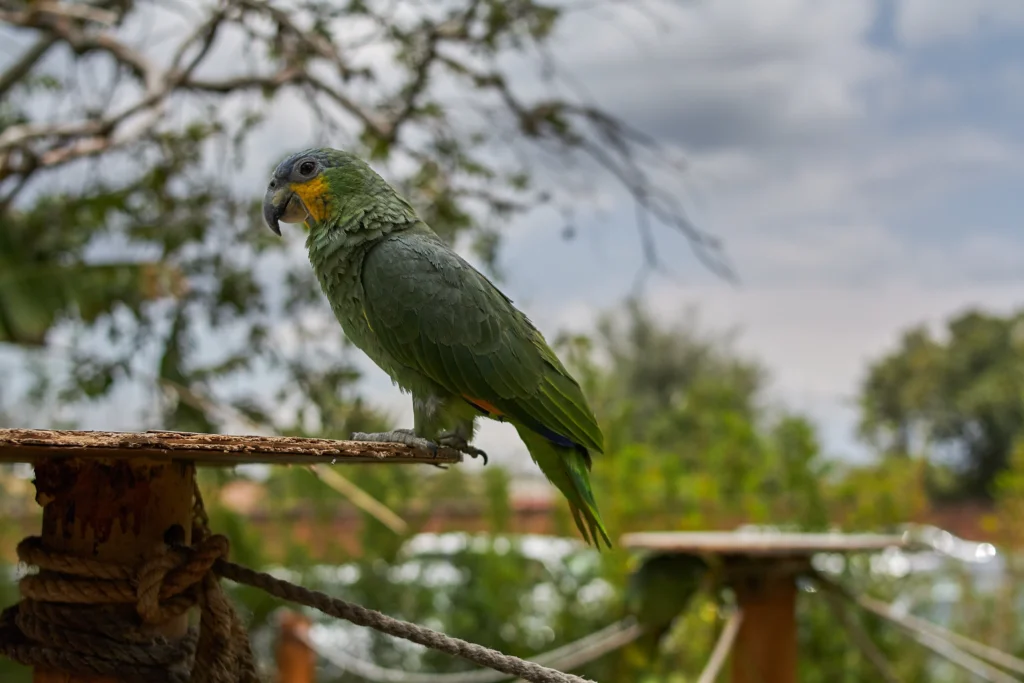
The Black Capped Conure intelligence level is high, comparable to that of a 2-3 year old child in many aspects. This intelligence creates significant social and attention needs:
- Require at least 3-4 hours of direct interaction daily
- Become depressed or develop behavioral issues when ignored
- May resort to screaming, feather plucking, or self-mutilation when lonely
- Cannot simply be left with toys as entertainment for extended periods
- Need consistent training and mental stimulation
Many owners underestimate how the Black Capped Conure personality includes this intense need for interaction, leading to deteriorating Black Capped Conure behavior when these needs aren’t met.
Unpredictable Bonding Patterns
Black Capped Conure bonding behaviors can be complex and sometimes frustrating:
- May bond intensely with one family member while rejecting others
- Can shift preferences without apparent cause
- Often exhibit jealousy toward spouses, children, or other pets
- May resort to aggressive displays when “their” person interacts with others
- Require careful socialization to prevent unhealthy attachment patterns
Black Capped Conure training can address some of these issues but requires consistent application of positive reinforcement techniques over months or years. The training process demands patience, consistency, and knowledge of avian behavior that many new bird owners simply don’t possess.
Understanding these behavioral complexities is crucial when considering a Black Capped Conure as a pet. Their challenging behaviors, coupled with their long lifespan, means committing to potentially decades of behavioral management strategies and adaptations to your household routines.
Reason #4: Substantial Long-Term Commitment
Perhaps the most critical reason to reconsider Black Capped Conure ownership is the substantial long-term commitment these birds represent. With a Black Capped Conure lifespan that frequently extends beyond 20-30 years, bringing one of these birds home means potentially committing to care for them longer than many marriages last, potentially outlasting children growing up and moving out, and possibly requiring provisions in your estate planning.
Financial Commitment
The lifetime cost of keeping a Black Capped Conure extends far beyond the initial Black Capped Conure price:
- Initial setup: $500-800 for appropriate cage, toys, perches, and feeding supplies
- Annual food costs: $300-500 for quality pellets, fresh produce, and treats
- Toy replacement: $200-400 annually as they destroy toys through normal use
- Routine veterinary care: $200-400 annually for checkups and preventative care
- Emergency veterinary fund: Should maintain $1000+ for unexpected illnesses
- Environmental modifications: Potentially thousands in bird-proofing, air purifiers, humidifiers
- Boarding costs: $25-50 daily when you travel
Over a 25-year lifespan, the total cost of Black Capped Conure care can easily exceed $25,000-30,000, making them one of the more expensive pet options despite their relatively affordable initial price.
Lifestyle Limitations
Owning a Black Capped Conure creates significant lifestyle constraints:
- Travel restrictions: Finding qualified bird sitters is challenging and expensive
- Housing limitations: Many rentals prohibit birds or have noise restrictions
- Daily schedule commitments: Morning and evening routines must accommodate bird care
- Social impact: The Black Capped Conure noise level may limit your ability to entertain at home
- Other pet considerations: Interactions with cats, dogs, or other household pets require careful management
The Black Capped Conure’s need for consistent daily care means they aren’t well-suited for people who:
- Travel frequently for work or pleasure
- Have unpredictable work schedules
- Plan to move frequently, especially internationally
- Anticipate major life changes in the coming decades
Physical Environment Challenges
The Black Capped Conure requires specific environmental conditions that may be difficult to maintain:
- Space requirements: Need room for a large cage plus safe flight space
- Safety concerns: Toxic houseplants, non-stick cookware, and chemical cleaning products must be eliminated
- Temperature control: May need backup heating/cooling systems during power outages
- Noise considerations: Their vocalizations may violate apartment noise restrictions or homeowner association rules
The Rehoming Reality
Perhaps most heartbreaking is what happens when unprepared owners surrender their birds:
- Black Capped Conures often go through multiple homes during their lifetime
- Rescue organizations report high rates of surrendered conures due to noise, mess, or behavioral issues
- Birds form strong bonds and suffer significant psychological trauma when rehomed
- Many surrendered birds develop self-destructive behaviors like feather plucking
- Finding new homes for adult birds with established behaviors is challenging
When searching “Black Capped Conure for sale” online, it’s worth noting how many listings are actually for rehomed adult birds rather than babies. This reality speaks to the frequency with which these birds overwhelm their original owners.
Before bringing a Black Capped Conure into your home, honestly assess whether you can commit to meeting all their needs consistently for potentially decades to come. If your life circumstances are likely to change significantly in ways that might impact your ability to care for them, considering a pet with a shorter lifespan or less intensive care requirements might be more responsible.
Alternatives to Consider
If after reading about these challenges, you’re reconsidering whether a Black Capped Conure is right for you, there are several alternatives that might better suit your lifestyle while still providing the companionship of a bird:
Other Bird Species
- Budgerigars (Budgies): Much quieter, less expensive, and require less space than conures while still offering interactive companionship
- Cockatiels: Moderately quieter than Black Capped Conures with less intense care requirements
- Bourke’s Parakeets: Known as the “quietest parrots,” these gentle birds are ideal for noise-sensitive environments
- Lineolated Parakeets: Quieter than most parrots with sweet personalities and less destructive tendencies
Non-Avian Pets
If you’re attracted to the intelligence and interaction of birds but concerned about the specific challenges of the Black Capped Conure, consider:
- Rats: Highly intelligent, trainable, and social, with much shorter commitments (2-3 year lifespan)
- Certain reptiles: Animals like bearded dragons offer interactive pet experiences without noise concerns
- Small mammals: Guinea pigs or rabbits can form bonds with owners while presenting fewer of the challenges associated with parrots
Alternative Ways to Enjoy Birds
If you love birds but aren’t sure about the commitment:
- Volunteer at bird rescues: Get hands-on experience with various species before committing
- Foster for rescue organizations: Provide temporary homes for birds in need while learning about their care
- Join local bird clubs: Interact with birds and learn from experienced owners without the full commitment
When a Black Capped Conure Might Be Right for You
Despite the challenges outlined in this article, the Black Capped Conure can make an excellent companion for the right person. You might be well-suited to Black Capped Conure ownership if:
- You have previous experience with smaller bird species and are prepared to step up to more complex care
- Your housing situation is stable, spacious, and allows for some noise
- You have a predictable schedule with time at home for daily interaction
- Your household understands and accepts the mess, noise, and attention these birds require
- You have financial resources set aside for both routine and emergency care
- You’re committed to providing appropriate mental stimulation and environmental enrichment
- You’ve researched Black Capped Conure behavior thoroughly and are prepared for training challenges
If you meet these criteria and are still interested in a Black Capped Conure, we recommend:
- Spending time with the specific bird you’re considering adopting before bringing it home
- Finding an experienced avian veterinarian before purchase
- Connecting with current Black Capped Conure owners through forums or clubs
- Setting up your home completely before the bird arrives
- Considering adopting an adult bird from a rescue rather than purchasing a baby
Conclusion
The Black Capped Conure represents a significant commitment that extends far beyond the adorable images typically shown when searching “Black Capped Conure pet” online. Their challenging noise levels, complex care requirements, demanding behavioral traits, and substantial long-term commitment make them unsuitable pets for many households.
Before bringing a Black Capped Conure into your life, carefully evaluate whether you can provide the specialized environment, consistent interaction, financial resources, and decades-long commitment these intelligent birds require. Remember that the initial Black Capped Conure price is just the beginning of what will be a substantial investment of time, money, and emotional energy.
If you determine that a Black Capped Conure isn’t right for your situation, consider the alternatives mentioned above that might better align with your lifestyle while still providing the joy of animal companionship. If you do decide to move forward with Black Capped Conure ownership, commit to providing the best possible care for the entirety of your bird’s life, which could span several decades.
For those who can meet their needs, the Black Capped Conure offers an unparalleled opportunity for a deep, interactive relationship with a highly intelligent and emotionally complex companion. Their playful antics, capacity for bonding, and vibrant personalities make them beloved pets for those truly prepared for the responsibility they represent.
Resources for Potential Black Capped Conure Owners
For readers who want to learn more about Black Capped Conure care and what to expect from these complex birds, we recommend the following trusted resources:
- Avian Welfare Coalition – Information on proper bird care and welfare
- Association of Avian Veterinarians – Find specialized avian veterinarians in your area
- BirdTricks – Training resources for parrots including conures
- World Parrot Trust – Conservation and education about parrots including care guides
- Lafeber – Nutritional information and care guides for pet birds
- Pampered Peeps – Articles and resources on proper bird care
Additionally, explore our other articles about bird care for more information about providing the best possible home for pet birds of all species.
Remember that responsible pet ownership means honestly assessing whether a particular species is right for your unique circumstances. Whether you decide to welcome a Black Capped Conure into your home or explore other companion animal options, making an informed decision is the first step toward a successful relationship with your pet.
Have you had experience with Black Capped Conures or other conure species? Share your thoughts and questions in the comments below!



